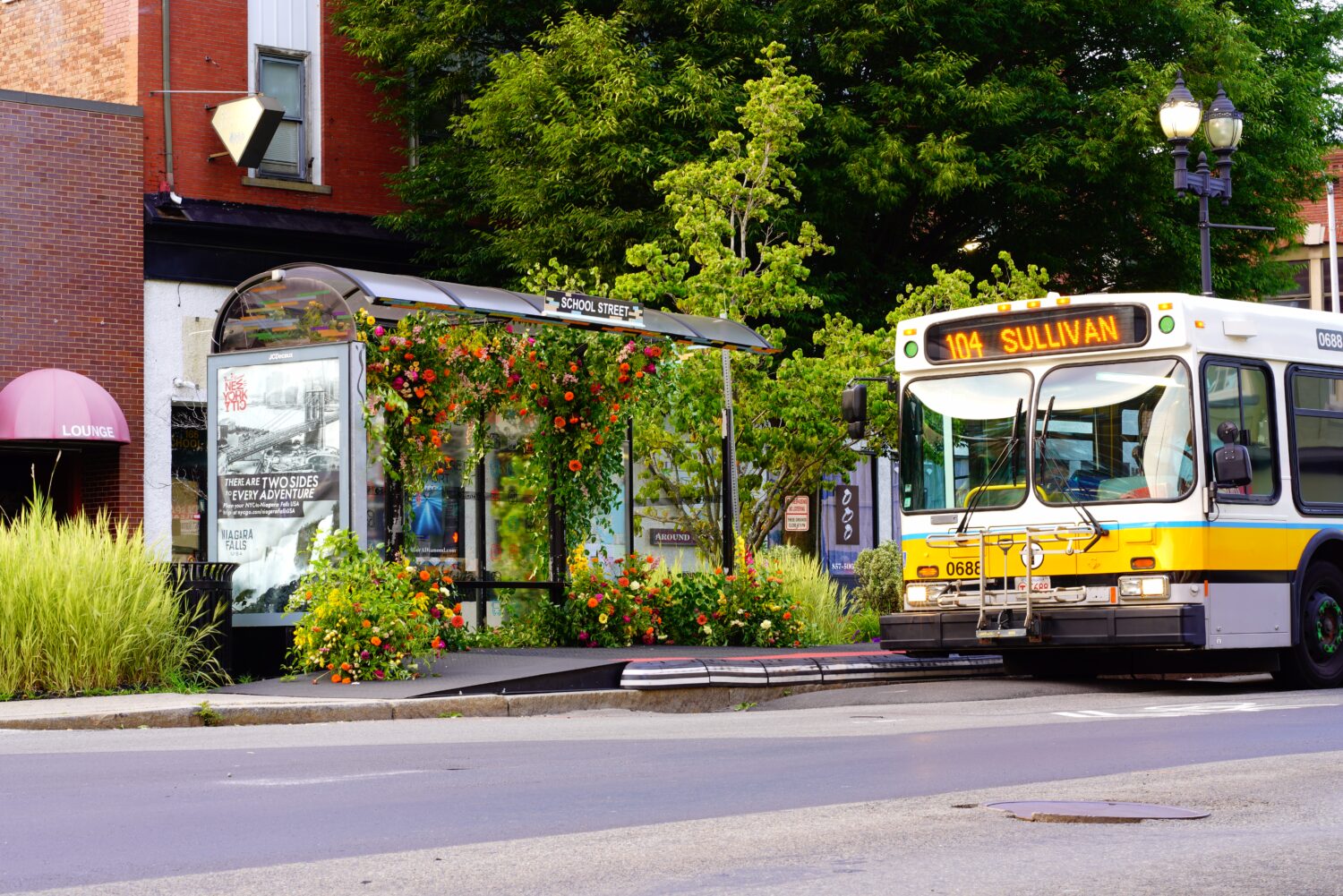The Regional Greenhouse Gas Initiative, known as RGGI, continues to succeed at reducing pollution, creating jobs, and boosting economies for all participating states. It’s no wonder that Virginia will soon add its name to the RGGI states, New Jersey is in the process of rejoining, and that states are exploring ways to reap the benefits of carbon markets to drive investments in transit and cleaner mobility options.
A new report released last month by the Analysis Group found that, over the past three years, RGGI helped grow participating states’ economies by $1.4 billion, while adding 14,500 job-years (equivalent to full-time jobs for one year of employment).Nine states participate in RGGI, including the six New England states plus New York, Delaware, and Maryland. Key findings from the report are detailed in the infographic below.

RGGI is a cap and trade program; it requires energy producers that emit carbon dioxide to buy pollution allowances through an auction process.This means that they must internalize some of the costs of carbon pollution related to fossil fuels. It also incentivizes investment in cleaner fuel sources.
Altogether, since the program was implemented in 2009, the nine RGGI states have collected $2.8 billion in auction proceeds. States typically use RGGI auction revenues to pay for energy efficiency and clean energy programs – a “cap-and-invest” approach that further cuts emissions, reduces energy costs, and creates jobs. When states invest RGGI proceeds in energy efficiency, they get the biggest “bang for the buck” as they add more businesses and jobs in activities such as energy audits and installing energy-efficiency equipment. RGGI also helped reduce by $1.37 billion the amount of money sent out of the region to import fossil fuels.
Looking back over nearly a decade of the RGGI program implementation, carbon dioxide emissions from power plants have been cut in half. Net economic benefits have totaled $4 billion, and the region has created over 44,000 new job-years.
Strong action on carbon pollution has also benefited consumers. Over the life of the RGGI program, consumers have seen a net savings of $220 million in energy costs across the region. These savings are in addition to the economic benefits that we all receive as members of the local economies in RGGI states where the auction proceeds are spent.
RGGI has proven that it is possible to significantly reduce carbon emissions in ways that provide significant and sustained economic benefits. It is also a great example of how, in the absence of national leadership, states can work together to continue to make meaningful forward progress on climate. With the additions of Virginia and New Jersey, the combined economic output of RGGI states would rise to $3.9 trillion, making it the fourth largest economy in the world.
The Barr Foundation is proud to join other funders in our support for RGGI, including support for independent research to assess its impacts, and for efforts to facilitate new states joining the RGGI market.
Read additional news coverage on the benefits of RGGI:
- “The Northeast US has a carbon-trading system. It is boosting, not hurting, state economies” (Vox, April 25, 2018)
- “U.S. Northeast carbon market creating jobs, revenue: study” (Reuters, April 17, 2018)
- “Study: Regional Greenhouse Gas Initiative Still Boosting Northeast Economies” (New England Public Radio, April 17, 2018)
- “How big can New England’s regional cap-and-trade program get?” (Utility Dive, May 1, 2018)




